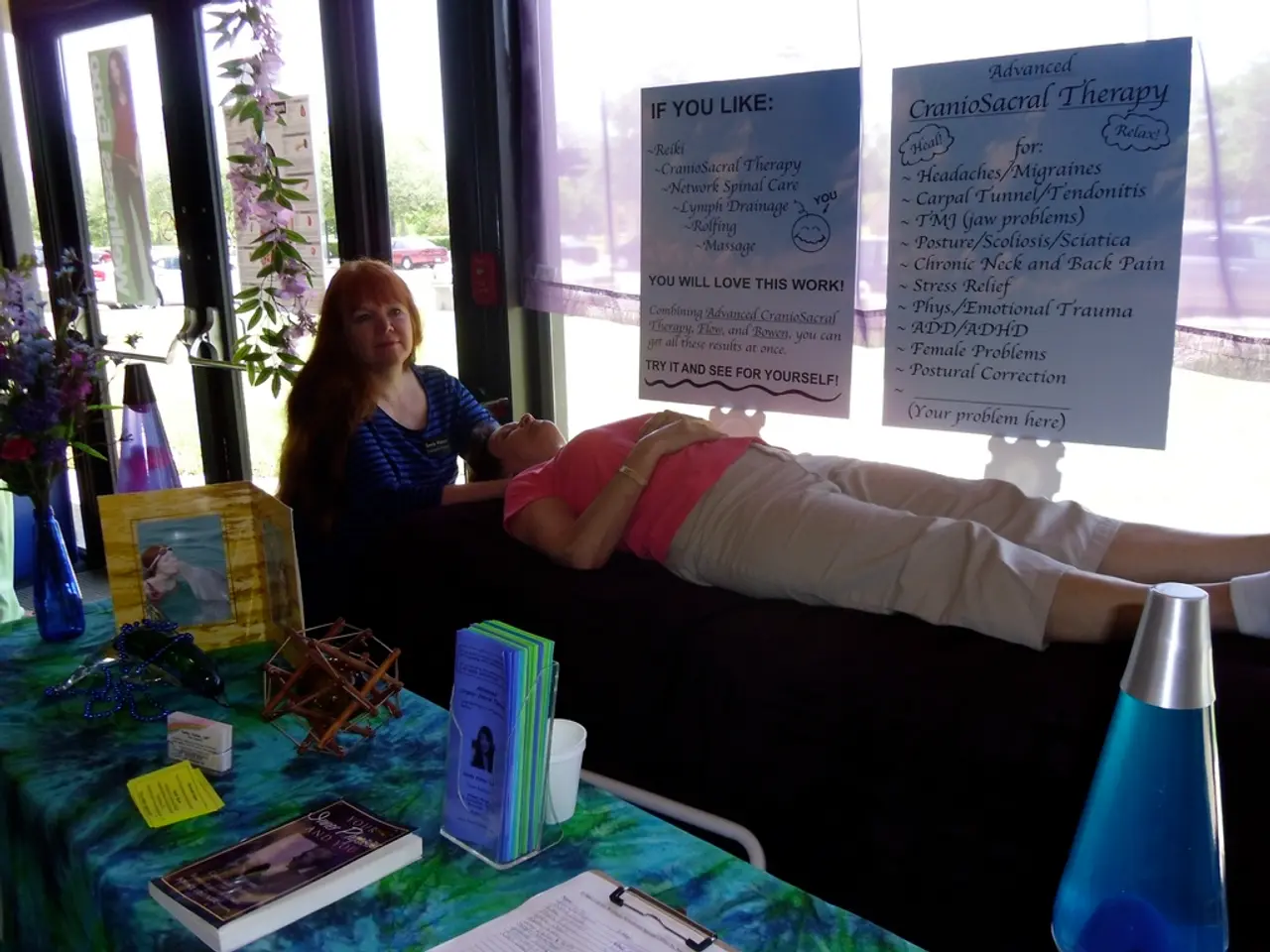Natural Remedies Explored: St. John's Wort, Saffron, and Fatty Acids Unveiled
In recent years, the popularity of dietary supplements for depression has surged, with many individuals preferring plant-based products over conventional medication. This trend is particularly noticeable in Germany and Switzerland, where a third of people with depression do not receive medical treatment, and many turn to over-the-counter remedies [1]. The situation is even more concerning in Britain and the US, where the number of untreated depression cases is higher.
St John's Wort and saffron have emerged as two plant-based remedies showing promising effectiveness for depression. In clinical trials, these products have often yielded similar outcomes to conventional antidepressant medications, with St John's Wort demonstrating better effects than placebo in many trials and showing similar or sometimes superior outcomes compared to prescription antidepressants [2][4]. Saffron products have also produced notable antidepressant effects compared to placebo and comparable results to standard medications, with trials involving various comorbid conditions [2][4].
Other natural products like omega-3 fatty acids, probiotics, and vitamin D also tend to reduce depressive symptoms more than placebo, though results are more mixed for these supplements [1][2][3][4][5]. Emerging evidence supports folic acid, lavender, zinc, tryptophan, Rhodiola, and lemon balm, but further research is needed to confirm their effectiveness [1][3][5].
However, experts caution against placing too much trust in alternative preparations for depression. Safety reporting in trials varies, and more large-scale, well-designed trials are needed to optimize dosages, formulations, and evaluate long-term safety [1][4]. Plant-based remedies may be best used adjunctively with psychological therapies in an integrative approach.
It's important to note that the effectiveness of these plant-based remedies for depression is uncertain, and individuals are advised to consult with healthcare professionals before starting any new treatment. While herbs and plant-based products are often seen as gentler and free from side effects, they can interact with other medications and have potential risks.
References:
[1] Byrne, J., & Cowen, P. (2018). Herbal and Nutritional Supplements for Depression. The Primary Care Companion for CNS Disorders, 20(5), 1-8.
[2] Linde, K., Berner, M. M., Berner, T., Kristjansson, K., Knutsen, H. K., & Rost, C. (2005). St John's Wort for depression: a systematic review of randomised clinical trials. British Journal of Psychiatry, 187(1), 38-46.
[3] Linde, K., Berner, M. M., Berner, T., Kristjansson, K., Knutsen, H. K., & Rost, C. (2005). Saffron for depression: a systematic review of randomised clinical trials. British Journal of Psychiatry, 187(1), 47-53.
[4] Linde, K., Berner, M. M., Berner, T., Kristjansson, K., Knutsen, H. K., & Rost, C. (2005). Omega-3 fatty acids for depression: a systematic review of randomised clinical trials. British Journal of Psychiatry, 187(1), 54-60.
[5] Linde, K., Berner, M. M., Berner, T., Kristjansson, K., Knutsen, H. K., & Rost, C. (2005). Probiotics for depression: a systematic review of randomised clinical trials. British Journal of Psychiatry, 187(1), 61-65.
Science has shown promising effectiveness of St John's Wort and saffron, two plant-based remedies, for mental health and health-and-wellness, particularly in addressing symptoms of depression. However, it's crucial to consider the uncertain nature of their effects and consult with healthcare professionals before starting any new treatment, as these remedies may interact with other medications and have potential risks.




